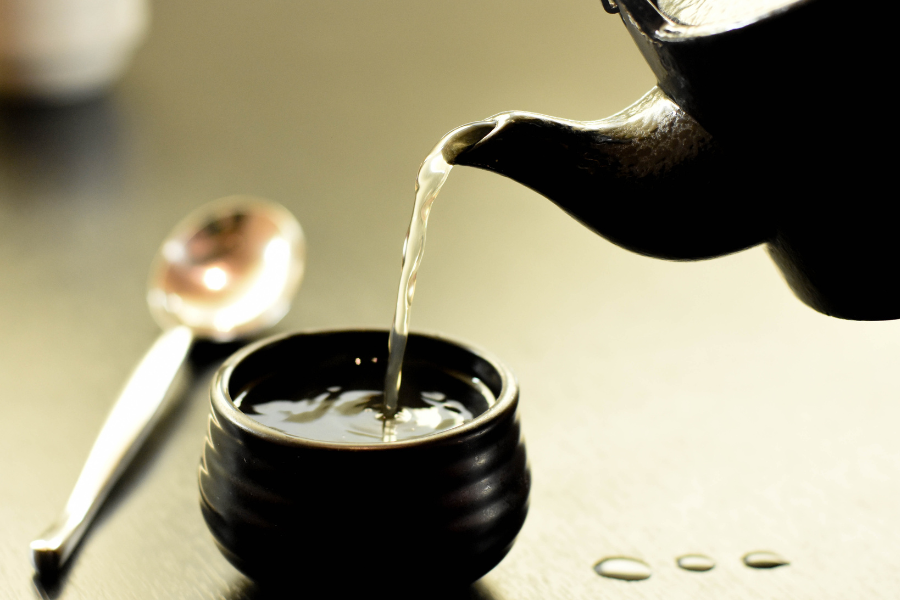Tea Isn’t Just a Comfort Drink—It’s a Wellness Ritual
I never thought much about tea until I started leaning into a more mindful lifestyle. At first, it was just a cozy habit—something warm to sip after yoga or enjoy during breakfast and after lunch. But the more I explored wellness, the more I kept asking: is drinking tea good for you? And wow, the research opened my eyes.
Tea isn’t just soothing and tasty—it’s packed with compounds that support everything from heart health to mental clarity. Whether you’re into green tea, herbal blends, or a classic black brew, there’s something in your cup that’s doing more than you think.
What’s Actually in Tea That Makes It So Good for You?
Let’s start with the basics. Most traditional teas—like green, black, oolong, and white—come from the Camellia sinensis plant. Herbal teas, on the other hand, are made from herbs, flowers, spices, or roots. Both types offer unique benefits.
Key Compounds Found in Tea
- Polyphenols: These powerful antioxidants help fight free radicals and reduce inflammation.
- Catechins: Found mostly in green tea, especially EGCG (epigallocatechin-3-gallate), which supports heart and brain health.
- Theaflavins: Present in black tea, known for their cholesterol-lowering effects.
- L-theanine: A calming amino acid that promotes relaxation without drowsiness.
According to studies, polyphenols in tea may help reduce the risk of heart disease, stroke, type 2 diabetes, and even premature death when consumed regularly.

Is Drinking Tea Good for Your Heart?
Yes—and the science backs it up.
Several observational studies suggest that drinking 2–3 cups of tea daily is linked to a lower risk of cardiovascular issues. Green tea, in particular, has been shown to improve blood vessel function and reduce LDL cholesterol levels.
A review published by Harvard Health notes that tea consumption is associated with reduced risks for heart disease, high blood pressure, and stroke.
So if you’re sipping tea while doing yoga or winding down after a long day, you’re not just relaxing—you’re actively supporting your heart.
Can Tea Help With Mental Clarity and Stress?
Absolutely. This is one of my favorite benefits.
Tea contains L-theanine, which works synergistically with caffeine to promote calm alertness. Unlike coffee, which can spike anxiety, tea gives you a gentle lift without the jitters.
Tea and Brain Health
- Green tea may improve cognitive function and memory.
- Black tea has been linked to reduced risk of dementia.
- Herbal teas like chamomile and lemon balm help ease anxiety and support sleep.
A study published in Phytomedicine found that regular tea drinkers had better attention and memory performance, especially when paired with mindfulness practices like yoga.
Is Drinking Tea Good for Your Gut and Digestion?
Yes, especially herbal teas.
Teas like peppermint, ginger, fennel, and chamomile have long been used to soothe digestive discomfort. They help relax the muscles in your digestive tract, reduce bloating, and support healthy gut flora.
Green and black teas also contain tannins, which have antimicrobial properties that may help balance gut bacteria.
So if you’re feeling sluggish or bloated, a warm cup of tea might be just what your body needs.
Tea and Immunity: Can It Help You Stay Well?
Tea isn’t a magic shield, but it does support your immune system.
Immune-Boosting Properties of Tea
- Antioxidants help reduce oxidative stress, which weakens immunity.
- Catechins in green tea may inhibit viral replication.
- Herbal teas like echinacea and elderberry are known for their immune-supportive effects.
According to studies, tea’s polyphenols play a role in cell protection from oxidative stress, which contributes to aging and various diseases, and immune regulation, making it a smart addition to your daily wellness routine.
Is Drinking Tea Good for You If You’re Sensitive to Caffeine?
It depends on the type of tea.
Caffeine Levels in Tea
- Black tea: Highest caffeine (about 40–70 mg per cup)
- Green tea: Moderate caffeine (20–45 mg per cup)
- White tea: Lower caffeine (15–30 mg per cup)
- Herbal tea: Usually caffeine-free
If you’re sensitive to caffeine, stick with herbal blends or decaffeinated options. You’ll still get many of the benefits without the buzz. There are certain herbal blends that are particularly helpful to let you sleep better, here are some recommendations.
Are There Any Risks to Drinking Tea?
Tea is generally safe, but there are a few things to keep in mind.
- Temperature matters: Drinking tea that’s too hot (above 131°F or 55°C) may increase the risk of esophageal cancer, according to observational studies1.
- Tannins can interfere with iron absorption if consumed in large amounts, especially with meals.
- Sweetened teas or bottled versions may contain added sugars and preservatives—always check the label.
So yes, is drinking tea good for you? Definitely—but like anything, moderation and mindfulness matter.
How I Use Tea in My Wellness Routine
I start my mornings with warm lemon ginger tea to wake up my digestion. After yoga, I love sipping green tea for a gentle energy boost. And in the evenings, chamomile or lavender tea helps me wind down and sleep better.
Tea has become more than a beverage—it’s a ritual. It’s how I pause, breathe, and reconnect with myself throughout the day.
Final Thoughts: Is Drinking Tea Good for You? Yes—And Here’s Why
Let’s wrap it up with the essentials:
- Tea is rich in antioxidants that support heart, brain, and immune health.
- Green and black teas offer cognitive and cardiovascular benefits.
- Herbal teas soothe digestion, reduce stress, and promote sleep.
- L-theanine and polyphenols make tea a powerful wellness ally.
- Scientific research supports tea’s role in reducing disease risk and enhancing overall wellbeing
So next time you ask, is drinking tea good for you?—you’ll know the answer is a confident yes, but like anything else, just don’t overdo it.





